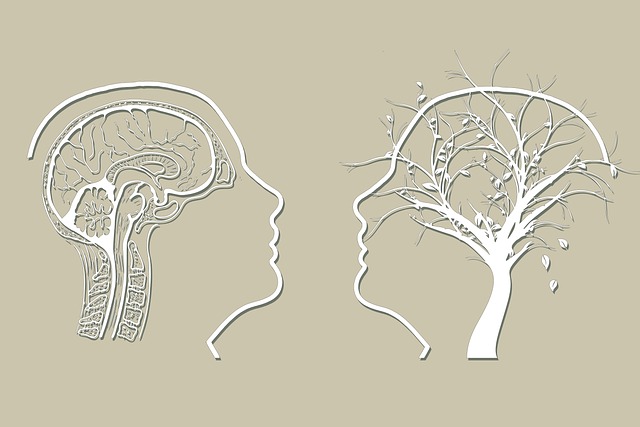Codependency, fueled by past experiences, disrupts communities by enabling rescue behaviors, hindering individual growth. Community outreach programs, incorporating mindfulness, resilience building, and stress reduction techniques, empower individuals to set boundaries, improve communication, practice self-care, and navigate challenges independently. These initiatives, including therapy for codependency, break cycles of dependency, foster healthier relationships, and build resilient communities. By tailoring programs to diverse needs, using creative communication strategies, and incorporating compassion cultivation, outreach can effectively address codependency while managing professional risks. Success is measured holistically, with long-term sustainability achieved through ongoing support groups and mindfulness practices.
“Community outreach programs play a pivotal role in addressing codependency, a pervasive issue impacting societal fabrics. This article delves into the multifaceted benefits of implementing such initiatives for effective codependency therapy. We explore strategies to engage at-risk populations, facing challenges and nuances. From understanding codependency’s reach to measuring program success, each section guides professionals in creating sustainable, impactful therapy for codependency and fostering healthier communities.”
- Understanding Codependency and its Impact on Communities
- Benefits of Community Outreach Programs for Codependency Therapy
- Strategies for Effective Implementation of Outreach Initiatives
- Engaging at-risk populations: Techniques and Challenges
- Measuring Success and Long-term Sustainability of Outreach Programs
Understanding Codependency and its Impact on Communities

Codependency, a complex emotional state where individuals become overly reliant on others for validation and support, can profoundly impact community dynamics. This dynamic often arises from an unhealthy attachment formed due to past experiences, such as trauma or insecure relationships. When left unaddressed, codependency can foster patterns of enabling and rescuing within communities, hindering individual growth and self-reliance.
Implementing community outreach programs that focus on raising awareness about codependency is a crucial step towards fostering healthier relationships and resilient communities. Incorporating practices like mindfulness meditation and resilience building can empower individuals to develop boundaries, improve communication, and cultivate self-care habits. Additionally, teaching effective stress reduction methods allows community members to navigate challenging situations with greater equanimity and independence, breaking the cycle of codependent patterns.
Benefits of Community Outreach Programs for Codependency Therapy

Community outreach programs play a pivotal role in enhancing the accessibility and effectiveness of therapy for codependency. By extending services to community settings, mental health professionals can reach individuals who might otherwise face barriers to care, such as limited mobility or financial constraints. This approach not only expands the reach of therapy for codependency but also fosters a sense of belonging and support within these communities.
Moreover, cultural sensitivity in mental healthcare practice is significantly boosted by community outreach programs. By engaging with diverse populations, therapists can adapt their approaches to suit the unique cultural needs and backgrounds of their clients. This ensures that crisis intervention guidance is not only effective but also respectful and relevant. The integration of these programs into local communities contributes to improved mental wellness podcast series production, as it allows for more inclusive and impactful content creation, addressing the specific challenges and triumphs related to codependency across various cultural contexts.
Strategies for Effective Implementation of Outreach Initiatives

Implementing community outreach programs requires a strategic approach to ensure their effectiveness and long-term success. One key strategy is to tailor initiatives to the specific needs of the target audience. This involves thorough research and understanding of the demographic, cultural, and social factors within the community. For instance, when addressing issues related to codependency, tailoring therapy sessions or support groups to cater to diverse populations can enhance engagement and outcome.
Effective outreach goes beyond just delivering information; it’s about fostering meaningful connections. Public Awareness Campaigns Development can be a powerful tool to capture attention and spark conversations. By utilizing creative Communication Strategies, organizations can break down complex topics like codependency into accessible, relatable messages. Encouraging open dialogue through these campaigns promotes understanding and reduces the stigma associated with seeking help for mental health issues, including therapy for Codependency. Adhering to Mind Over Matter principles allows individuals to recognize their strength and resilience, fostering a sense of empowerment to take control of their well-being.
Engaging at-risk populations: Techniques and Challenges

Engaging at-risk populations, such as those dealing with codependency and other mental health challenges, requires tailored strategies that foster trust and connection. One effective technique is incorporating compassion cultivation practices into community outreach programs. By teaching emotional well-being promotion techniques, professionals can create safe spaces where individuals feel understood and supported, encouraging them to seek help for their codependency therapy needs.
However, navigating these efforts comes with challenges. Risk management planning for mental health professionals is crucial to ensuring the safety of both practitioners and clients, especially when working with vulnerable populations. Balancing empathy and boundaries, while providing compassionate cultivation practices, demands careful consideration. Professional training and ongoing support are essential to help facilitators navigate these complexities, ultimately enhancing their ability to connect with at-risk individuals in meaningful ways.
Measuring Success and Long-term Sustainability of Outreach Programs

Measuring the success of community outreach programs is a multifaceted endeavor. It goes beyond simple attendance numbers or short-term behavioral changes. For initiatives focused on therapy for codependency, sustainable progress often lies in tracking long-term participant well-being, such as improvements in mental health policy analysis and advocacy skills and enhanced emotional intelligence. These aspects indicate that individuals are not only gaining knowledge but also developing the tools to advocate for their own and others’ mental health needs within their communities.
To ensure long-term sustainability, outreach programs should integrate practices that promote continuity of care. This could involve implementing mindfulness meditation techniques or providing ongoing support groups led by trained facilitators. By fostering a sense of community and empowerment, these programs can create lasting change, where individuals become agents of positive transformation within their social fabric, contributing to a healthier and more emotionally intelligent society.
Community outreach programs play a pivotal role in addressing codependency, offering invaluable support and resources to those struggling. By implementing effective strategies, as outlined in this article, we can successfully engage at-risk populations and provide access to much-needed therapy for codependency. Measuring the long-term sustainability of these initiatives is crucial to ensure their ongoing impact and success in fostering healthier, more resilient communities.














